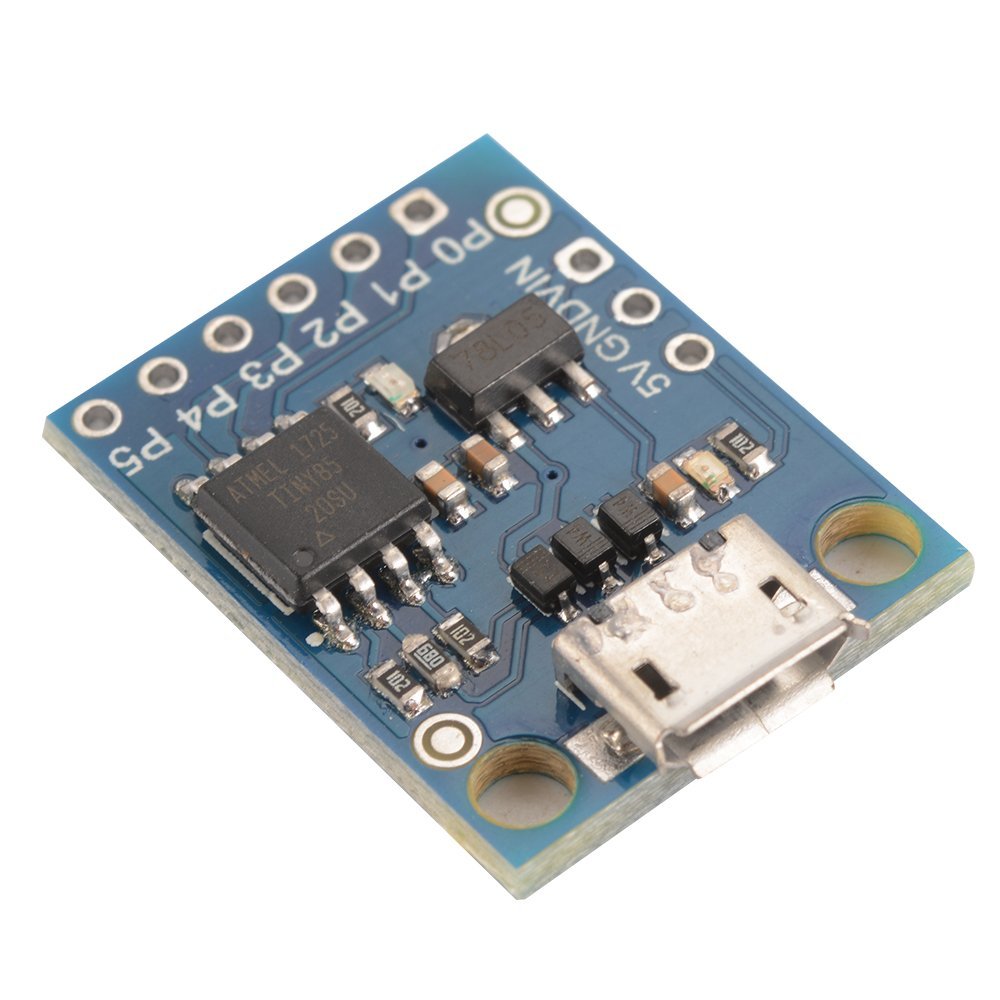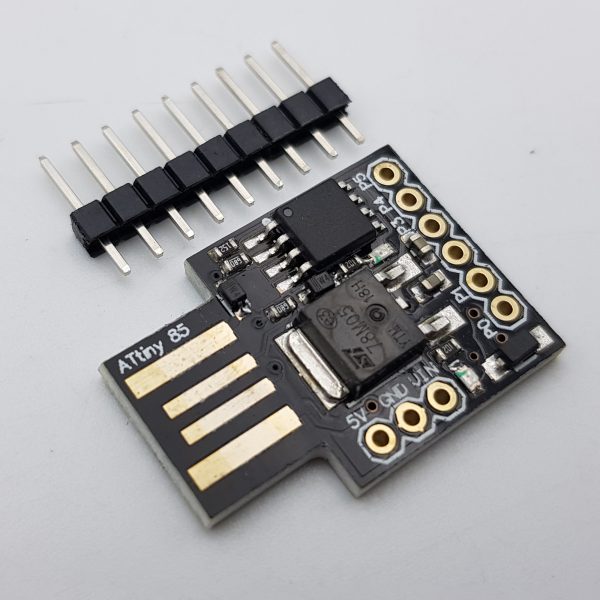

- #Attiny85 digispark reprogramming how to
- #Attiny85 digispark reprogramming pdf
- #Attiny85 digispark reprogramming install
- #Attiny85 digispark reprogramming android
- #Attiny85 digispark reprogramming code
Can anyone help me with it? Since am learning this controller, practicing core programming is quite important.

When user attempts to access timer registers it might not work as intended.īut am not sure about the validity of above opinion. When searching the internet I have got few suggestions that this might be because Arduino IDE uses timer registers for delay function.
#Attiny85 digispark reprogramming code
I have uploaded the above code but the LED isn't responding as anticipated. I have used the overflow flag to identify TCNT0 register status. While((TIFR & (1 << TOV0) )=0) //Waiting for 0-255 and flag to raise GTCCR|= (1<

Don’t even worry about the port! You’re going to hit Upload first, then plug the board into a USB port, when the output window asks you to. After this has completed, you’ll need to restart the IDE.Īssuming you went with the regular board, pick Digispark (Default – 16.5mhz) from the Boards menu.
#Attiny85 digispark reprogramming install
Now, go to Tools > Board > Boards Manager, find the Digistump list item, click on it, and hit the Install button.
#Attiny85 digispark reprogramming how to
This tells the IDE how to talk to your Digispark, and you only have to do it once. (Didn’t work? Check the official page for updates, and let me know!) Under “Additional Boards Manager URLs”, enter this URL (after any you already have): To program the board, first we need to open up the Arduino IDE’s Preferences pane. Change each instance of pin 13 to a 0, to match your setup. We’ll start with the Blink example sketch ( File > Examples > 01.Basics > Blink). But for the simple Blink sketch, here’s all you need: THE CODE I attached female headers to the board so that I could easily swap it in and out of NeoPixel circuits. With a Digispark, you can solder straight to the breakout pins. You can take the other Arduino out of the picture completely! There are two main versions: one with a direct plug for your computer (or a USB power bank), and one with a USB Micro jack. It’s the best of both worlds – a hybrid of the ATtiny’s size and price with the convenience of programming it directly from your computer. What I’ve found most useful is the Digispark breakout board. If you want to go this route, check out Arjun’s fantastic tutorial. This protects the IC from the high temperature, and you’ll be able to remove and reprogram it later. If you’re soldering together an ATtiny-based project, use a socket instead of soldering directly to the chip. The ATtiny is great if you want to program a bunch of chips in a row, put them in your circuits, and forget about them. The chip comes in a few different types – ones with more flash memory, lower power, and so forth. This helps make the project smaller and more permanent, as well as freeing up the Arduino for more fun!

The ATtiny is a small, inexpensive chip that can replace the Arduino in a project you have prototyped.
#Attiny85 digispark reprogramming pdf
#Attiny85 digispark reprogramming android
Android based arduino Projects List Download PDF.esp8266 arduino projects list in pdf offline downloadable.Arduino Proteus Projects List for Download.Arduino UNO Projects List in PDF offline downloadable.Arduino Mega 2560 projects list in PDF offline downloadable.Arduino Complete Projects List PDF Downloadable.Huge List of tutorials & Components based resources.


 0 kommentar(er)
0 kommentar(er)
